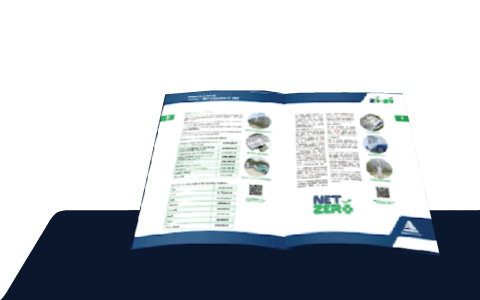Dear Valued Customers,
AES Engineering Ltd and the AESSEAL group of companies ('AESSEAL') are aware of proposals put forward by the EU, USA and other regional market places to impose restrictions, stringent control measures or ban entirely use of PFAS materials.
Per- and polyfluoroalkyl substances (PFAS) comprise a “Class” of organic alkyl (carbon based) substances in which the carbon-hydrogen groups on which all (Per-) or many (Poly-) of the hydrogen atoms have been replaced with fluorine. PFAS is the widest definition and class name for all chemicals containing CF2 or CF3 groups. This includes discrete small molecules, monomers and short chain fluorochemicals which are used as part of a polymerisation process. Within the EU, the proposal to extend REACH restrictions covers both small molecules and polymers. It does not discriminate in the intention to restrict all PFAS within the market.
AESSEAL does not use PFAS substances in the manufacture of its products. Some components used in the assembly of its mechanical seals, bearing protection and associated products are often made of PFAS containing materials such as PTFE, FEP, PFA, FKM, FFKM, FVMQ and FEPM (aka fluoropolymers). These are generally in the form of moulded rubber (elastomeric polymer), shaft seals, gaskets, O-rings and other secondary sealing elements where PFAS is used in the resins to manufacture these certain parts. In this and cross-linked rubber form, they are of larger molecular weight materials which are non-bioavailable and are considered to be Polymers of Low Concern (PLC).
PFAS materials are used in almost all applications within the mechanical sealing industry due to their broad chemical, temperature and physical performance characteristics which are required to suit the compatibility, operational and safety requirements of end users across all process industries around the world. As such, AESSEAL estimates that currently over 99% of all mechanical seals we and other manufacturers supply contain PFAS materials.
AESSEAL shares the position of our close industry bodies; Europump, the European Sealing Association (ESA) and others in rejecting the broad restriction of PFAS. Fluoropolymer seals which fall within the scope of PFAS are irreplaceable in certain industries and many vital applications will not work without these materials. There is no suitable alternative that provides a comparative or adequate level of performance to avoid failures and leakages leading to release of aggressive process media, potentially causing harm to humans and the environment. AESSEAL fully supports the restriction of the release of PFAS into the environment but the use of PFAS materials should remain possible for those applications.
If the use of PFAS materials does become fully prohibited, very few others are available but with significantly reduced performance (e.g. Nitrile Rubber). End users would be required to accept significant reductions in reliability and seal life, increased maintenance costs and adopt alternative environmental controls through use of appropriate dual seals, seal support systems and site controls to minimise risks. Far beyond mechanical seals, a blanket ban or regulation of these polymeric PFAS will have a profound negative impact on society (health, welfare, and standard of living). No suitable alternatives to PFAS substances lead to high socio-economic costs when trying to replace them. They are critical to global development and pose no concern to public safety.
AESSEAL are participating in industry consultation via our associated trade bodies to inform market authorities of the disadvantages of the current proposals. We encourage our customers and end users to read position statements of industry groups and provide their own feedback via the appropriate market routes and ask that PFAS fluoropolymer (fluoroplastic and fluoroelastomer) materials are exempt from the proposed regulation.
It is important to note that in many regulatory areas low molecular weight PFAS of known concern such as PFOA and PFOS are currently already subject to restriction. However as fluoropolymers are manufactured using low molecular monomers and short chain intermediates PFAS monomer feedstock must continue to be allowed for manufacturing with necessary controls, if appropriate, put in place.
At this time AESSEAL will continue to supply the materials described above whilst accepted by our customers.
For and on behalf of AES Engineering Ltd and the AESSEAL Group of Companies
Stephen Shaw CEng FIMechE CMIOSH BEng (Hons) MBA, Group Engineering Director
Luke Farmer MEng(Hons) CEng MIMechE, Engineering Manager – Special Products, AESSEAL plc
Emma Turner, Head of Commercial & Supply Chain
This statement is available as a PDF file Download here





